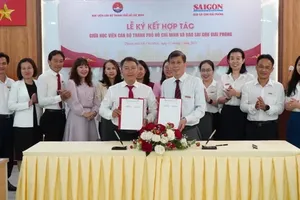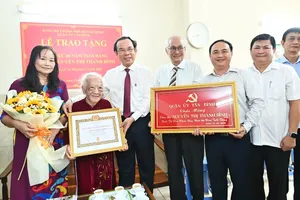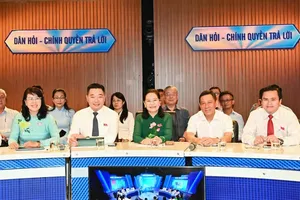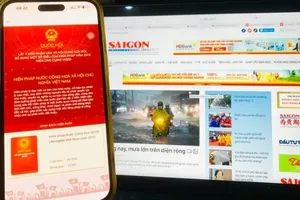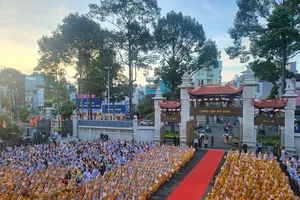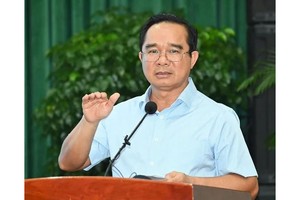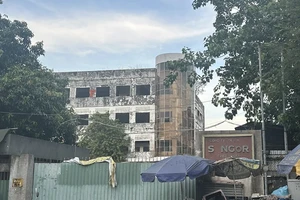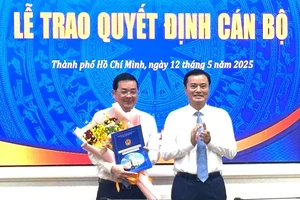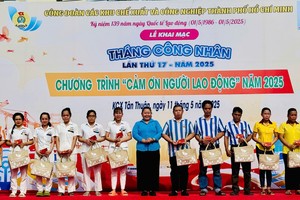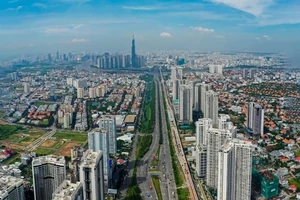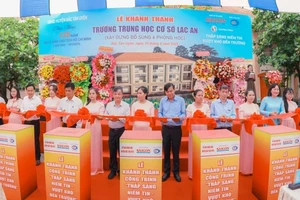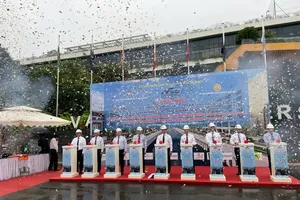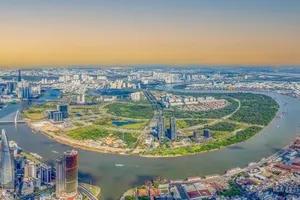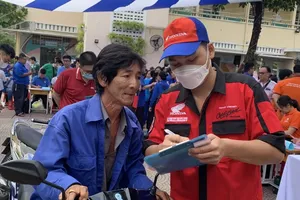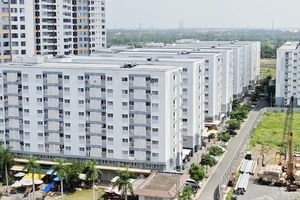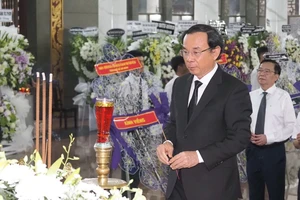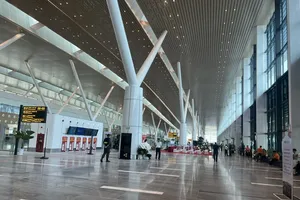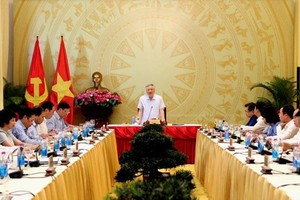 |
Dr. Tran Du Lich, Chairman of the Advisory Council |
Introducing the characteristics of the Advisory Council for Resolution 98 (Advisory Council), Dr. Tran Du Lich first stressed that it is necessary to call upon huge resources from the community, particularly intellectual ones, to successfully adopt Resolution 98, thereby the birth of the Advisory Council to collect practical suggestions and solutions from experts, scientists, businesses, and all groups of people.
The Standing Office of the Advisory Council is the HCMC Institute for Development Studies, which is the hub to deliver essential information to members for proper consultation. The Advisory Council is mainly in charge of advising the municipal leaders in carrying out Resolution 98.
The member number of 25 people is only the core part, and more experts in such fields as culture, digital economy, environment will be invited to join in. Backing up the Council is a tight network of research centers, academies, universities. When in need for a certain research topic, it will ask for the participation of domestic and foreign scientists, international research organizations, leading businesses with much experience.
As to the operation method of the Advisory Council, Dr. Du Lich shared that right after the establishment, it already held its first meeting, led by Chairman of HCMC People’s Committee Phan Van Mai, to discuss the strengths and weaknesses of the city when implementing Resolution 98, along with possible action plans and operation schedules of the Council.
The most important role of the Advisory Council is to narrow down the gap between regulations and reality so that the mechanisms offered by the Resolution can benefit the city in general, and each dweller group in particular.
There are now six key focuses for in-depth research by the Council:
_Improving the quality of civil services and organizing an urban government for a megacity like HCMC;
_Promoting green, circular, and digital economy;
_Devising policies to mobilize resources for urban infrastructure construction;
_Developing policies to call upon resources for social infrastructure building;
_Preparing policies to attract strategic investors in the city;
_Devising policies and mechanisms to boost science-technology and innovation in the city.
Each aspect will have its own research group who can help the city’s authorities to address any potential issues arising when adopting corresponding measures.
Answering the question about the role of the Advisory Council when piloting schemes in HCMC can create breakthroughs and then be applied nationwide, Dr. Du Lich said that Resolution 98 does offer specific policies and mechanisms for the growth of HCMC, and through that to provide similar ones for other regions in the country. Therefore, the city needs careful preparation, which is the responsibility of the Advisory Council.
Many Council members wish for regulations to use sandbox models in various fields like digital banking, commodity futures trading market, or policies to attract international strategic investors. They are ready to contribute their knowledge to forming such models.
Also, the Advisory Council is in charge of advising HCMC in preparing for projects related to new fields of issuing international bonds, perfecting the urban government model, suitable mechanisms and policies to attract strategic investors to an international financial center.
 |
Prof. Dr. Nguyen Trong Hoai – former Vice President of HCMC University of Economics and member of the Advisory Council |
Prof. Dr. Nguyen Trong Hoai – former Vice Principle of HCMC University of Economics and member of the Advisory Council – said that economic growth must be in parallel with environment protection. The green, circular, digital economy that takes good care of the environment will offer better life quality to city dwellers in the future. At present, HCMC has no true eco-industrial park at all even though this model is critical for sustainable growth.
Being the leader in constructing industrial parks, HCMC is now entering its post-industrial stage. Therefore, it is necessary to wisely mobilize resources to restructure those parks to make them more eco-friendly. There are several resources for environmental study to attract the participation of global specialists in researching the city’s environment.
 |
Dr. Nguyen Si Dung – former Vice Chairman of the National Assembly’s Office and member of the Advisory Council |
Dr. Nguyen Si Dung – former Vice Chairman of the National Assembly’s Office and member of the Advisory Council – commented that to have a breakthrough development, HCMC needs to reform its civil service system. This reform requires the participation of talented people, who can be pinpointed through nomination and screening tests for recruitment.
Acquiring sufficient capable staff, the city will be able to grow to its fullest even in a short time; otherwise, it will be truly troublesome for HCMC to fulfill the assigned goals. Objective examinations to choose the right ones is the key.
Adding to that is the given authority for the municipal leaders to independently make decisions within its power and in compliance with the laws. That will accelerate all administrative procedures and effectively run the institution.
